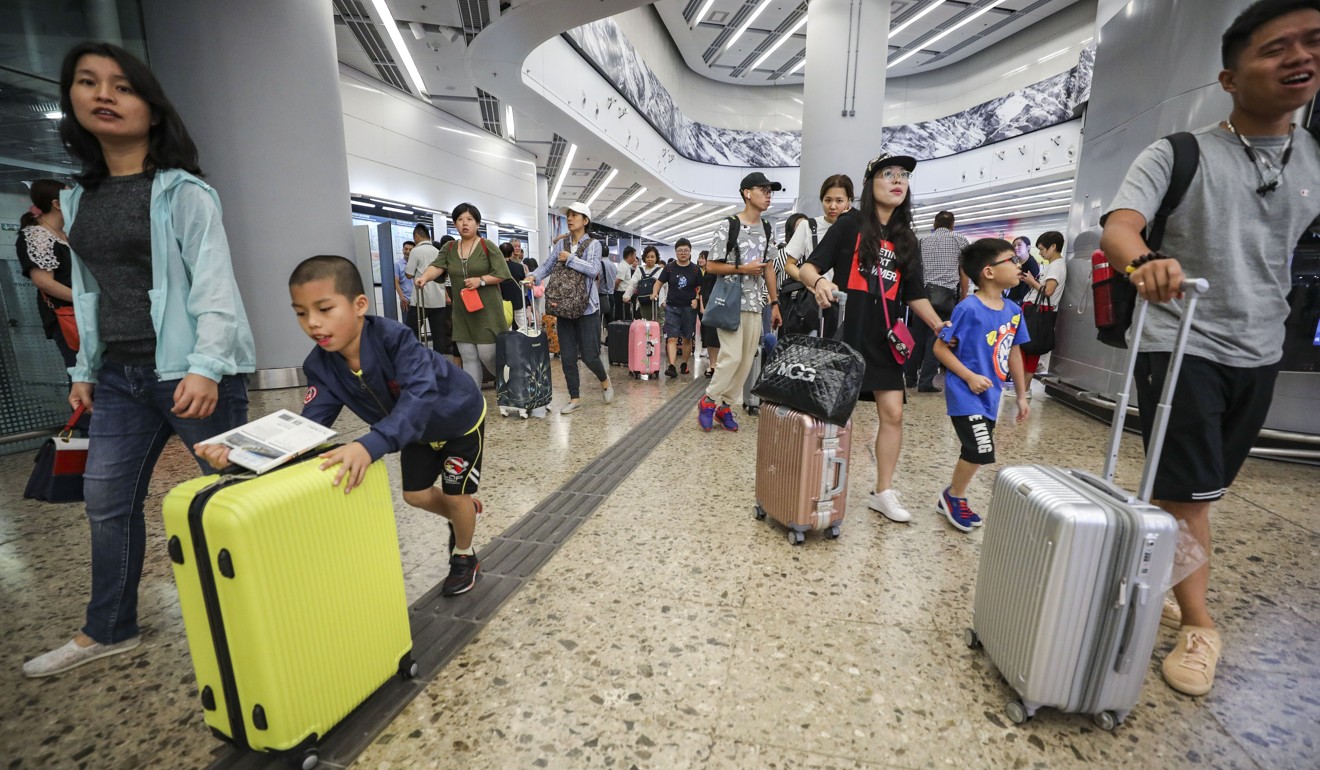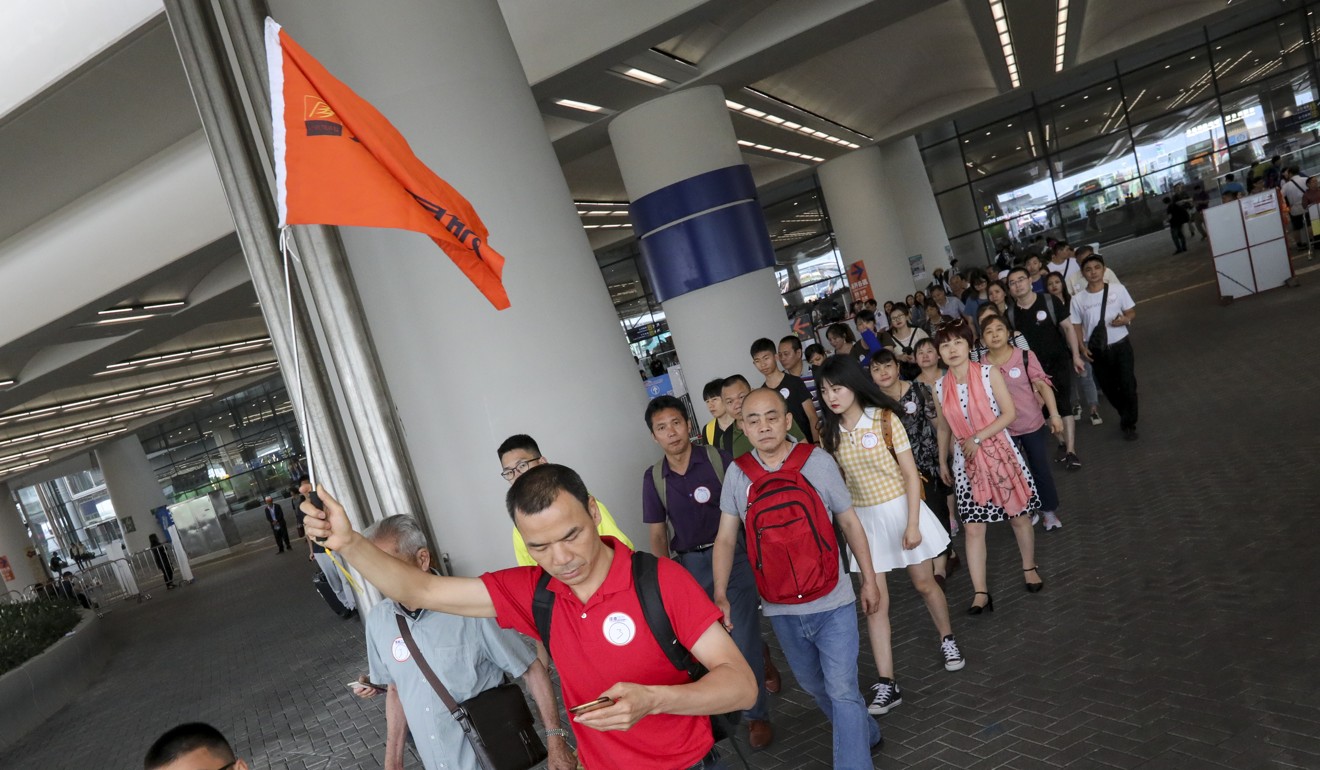
Tourist visits to Hong Kong surge by nearly a fifth to 6 million in May, driven by mainland Chinese holidays, but impact of extradition bill protests looms large
- Mega bridge and high-speed rail link fuel increase
- Tourism boss warns protests gripping Hong Kong this month could slow growth
The year-on-year growth was mainly driven by the 4.72 million mainland visitors coming to the city that month, an increase of 23.6 per cent from a year earlier, according to Hong Kong Tourism Board data published on Friday.
Local tourism chiefs predicted the civil unrest would slow growth for June, with some people put off by the political instability witnessed this month.
Timothy Chui Ting-pong, executive director of the Hong Kong Tourism Association, whose members include hotels, travel agents and attractions, said the mainland’s Labour Day holiday between May 1 and 4 helped boost numbers.

But Chui expected the overall growth rate in June would be lower partly because of protests against the now-suspended extradition bill, which would have allowed the transfer of fugitives to the mainland and other jurisdictions with which Hong Kong had no extradition deal.
“Mainland people can see that there are protests in Hong Kong,” he said, adding that some might be deterred from visiting the city.
This prompted the cancellation of the three-day dragon boat carnival.
Last Friday and on Wednesday, thousands of people besieged the police headquarters in Wan Chai when the government refused to fully scrap the bill after two massive rallies, including one that drew an estimated 2 million people.
Chui said the extent to which demonstrations had affected group visitors’ sentiment might not be shown in June’s figures because the trips for this month were booked before the political crisis escalated.
The impact could be reflected in July’s arrivals data.
Brian King, associate dean of Polytechnic University’s School of Hotel and Tourism Management, agreed there could be a short-term setback because instability would make people defer their plans.
“The vast bulk of people like destinations that seem to be calm, seem to be safe,” he said.
“Any disturbance, or political or natural disaster, will deter some people from travelling. It will have some impact.”

But at most he expected the instability would only slow growth for June as the new cross-border infrastructure would help make up for that.
“Unless the situation deteriorates, we are still going to see substantial growth in 2019,” he said.
Tourism sector lawmaker Yiu Si-wing estimated occupancy rates at local hotels in June had dropped 5 to 10 per cent year on year, and the impact was more significant for those in Wan Chai and Admiralty, the main protest areas.
The protests affected individual tourists more so fewer overnight visitors would come, he added.
“Overnight visitors are more high-spending. When they decide whether to come to a place, they will consider whether there are things to be worried about,” he said.
Yau told them that if the political situation had become calm after July 1, the 22nd anniversary of Hong Kong’s return to Chinese rule, then the industry could strengthen its promotions for markets that had seen a stable performance in the first half of 2019, Yiu said.
For the first five months, overall arrival figures jumped 14.9 per cent to almost 30 million from the same period last year, with 23.6 million visitors from the mainland.

